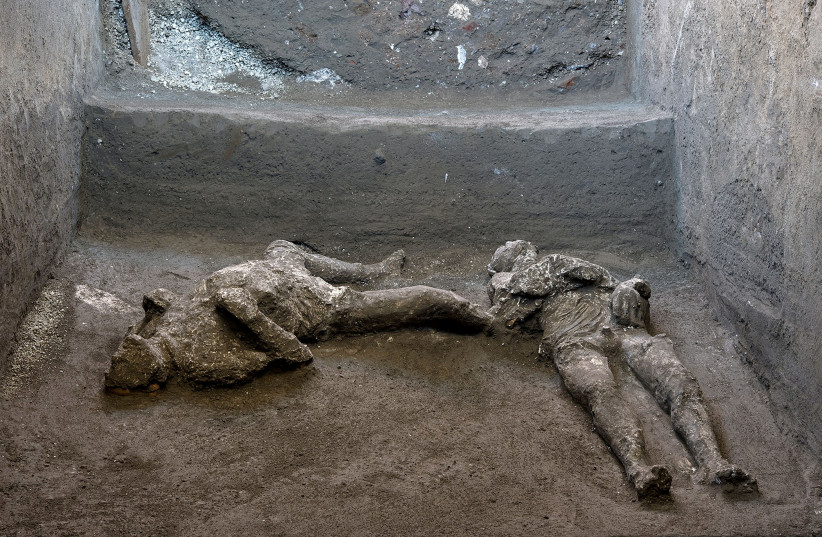A fresco that depicts what might be an ancestor of the Italian pizza has been found on the wall of a house in the ancient Roman city of Pompeii, Italy's Culture Ministry said on Tuesday.
Archaeologists presume that the flatbread depicted in the painting, next to a wine goblet, may have been eaten with fruits such as pomegranates or dates, or dressed with spices and a type of pesto sauce, the ministry said.
While it cannot technically be considered a pizza, since it lacks classic ingredients such as tomato and mozzarella, what was found in Pompeii "may be a distant relative of the modern dish", according to a statement.
Pompeii, destroyed by an eruption of the Mount Vesuvius volcano nearly 2,000 years ago, is only about 23 km away from Naples, the modern-day home of the Italian pizza, a UNESCO-protected food.
The fresco was discovered in the hall of a house that had a bakery attached to it, which was partly excavated in the 19th century and where digging resumed in January, the culture ministry said.

Why is the pizza fresco only coming to light now?
The Pompeii site, not discovered until the 16th century, has seen a burst of recent archaeological activity aimed at halting years of decay and neglect. This is largely thanks to a recently concluded 105-million-euro ($114.85 million) EU-funded project.
